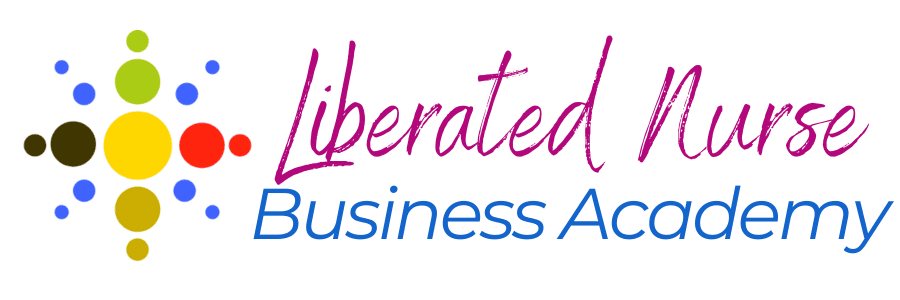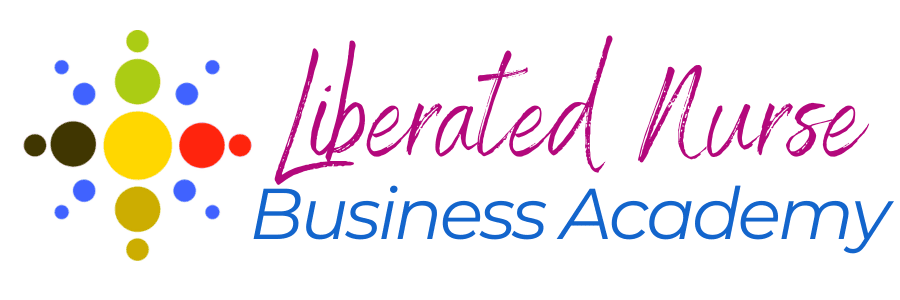Are you a nurse with an entrepreneurial spirit?

Are you a nurse with an entrepreneurial spirit? If so, you'll be excited to learn how much nurse business owners can earn. The nursing profession has always been seen as a stable career choice, but nurses who venture into entrepreneurship have the potential to take their earnings to a whole new level.
Being a nurse entrepreneur allows you to combine your passion for helping people with your business acumen. Whether you open your own clinic, start a telehealth service, practice coaching, or create a technology solution, the opportunities are endless. But what about the financial side of things?
Nurse entrepreneurs can command higher salaries compared to their standard nursing counterparts. According to recent statistics, nurse entrepreneurs earn anywhere between $70,000 to $150,000 per year. This significant earning potential is due to a variety of factors and includes increased autonomy and time flexibility.
If you're considering taking your nursing skills and knowledge into the business world, this article will shed light on how much you can earn as a nurse entrepreneur. Discover the financial rewards that await you as you combine your nursing experience with your entrepreneurial drive. This earning potential can be a powerful motivator for nurses who are seeking to maximize their earning potential and achieve greater financial stability.
Becoming a nurse entrepreneur also allows you to have a direct influence on the lives of your patients or clients. As a business owner, you have the opportunity to identify unmet needs, develop innovative solutions, and provide personalized, high-quality care that can truly make a difference. This sense of purpose can be incredibly fulfilling and can serve as strong motivation for nurses who are passionate about making a positive change.
Nurse entrepreneurs' earning potential
The earning potential for nurse entrepreneurs can be significantly higher than that of standard nursing roles. According to recent data, nurse entrepreneurs can earn anywhere from $70,000 to $150,000 per year, with some exceeding the $250,000 mark. This substantial increase in earning potential is largely due to the ability of nurse entrepreneurs to command premium rates for their expertise and specialized, in-demand services.
For example, a nurse entrepreneur who opens their own clinic or specialized care facility can charge higher rates for the personalized, high-quality care they provide. Similarly, a nurse who develops and markets their healthcare technology solution or consulting services can generate significant revenue streams far exceeding the typical nursing salary.
Additionally, nurse entrepreneurs can maximize their earning potential by strategically diversifying their income, achieving greater financial security, and capitalizing on multiple revenue sources. This can include generating income from their core business operations plus passive income streams such as licensing their intellectual property, selling online courses or educational materials, or earning royalties from product sales.
It's important to note that the earning potential for nurse entrepreneurs can vary depending on a range of factors, including the specific nature of the business, the level of expertise and experience, the geographical location, and the market demand for the services or products offered. However, the overall trend demonstrates that nurse entrepreneurs have the potential to earn significantly income, making it an attractive career path for ambitious and entrepreneurial-minded nurses.
Successful nurse entrepreneur stories
The healthcare industry is rife with inspiring stories of nurses who have successfully transitioned into entrepreneurship, achieving remarkable success and financial rewards. One example is Erin Popovich, a registered nurse who founded her telehealth company, Nurse Disrupted, in 2017.
Erin recognized the growing demand for accessible, high-quality healthcare services, particularly in underserved and rural areas. By leveraging her nursing expertise and experience, she developed an innovative telehealth platform that connects patients with licensed nurses and nurse practitioners for virtual consultations and care. Erin's entrepreneurial vision and commitment to improving healthcare access have paid off, as Nurse Disrupted has experienced rapid growth, with an estimated annual revenue of over $1 million.
Another inspiring story is that of Nurse Alice, a nurse practitioner who founded her own healthcare consulting and education company, Nurse Alice LLC. Leveraging her extensive clinical experience and her passion for empowering nurses, Nurse Alice has built a thriving business that provides a range of services, including online courses, coaching, and consulting for other healthcare professionals. Her entrepreneurial success has allowed her to earn a six-figure income, far exceeding the typical earnings of a nurse practitioner in a traditional clinical setting.
These examples demonstrate the immense potential for nurses to achieve financial success and personal fulfillment through entrepreneurship. By identifying unmet needs, developing innovative solutions, and leveraging their nursing expertise, these nurse entrepreneurs have created businesses that not only generate substantial income but also make a meaningful impact on the healthcare industry and the lives of their patients or clients.
Skills and qualities needed for nurse entrepreneurship
Transitioning from a conventional nursing role to becoming a successful nurse entrepreneur requires unique skills and qualities. While nursing expertise and clinical knowledge are undoubtedly essential, several additional competencies and characteristics can contribute to a nurse entrepreneur's success.
One of the most critical skills for nurse entrepreneurs is the ability to think strategically and identify market opportunities. Successful nurse entrepreneurs are adept at recognizing unmet needs and developing innovative solutions that address those needs. This requires a deep understanding of the people they serve, the ability to analyze gaps in existing services, and the creativity to envision new products or programs that can fill those gaps.
Strong business acumen is another crucial skill for nurse entrepreneurs. This includes a solid grasp of financial management, marketing, operations, and other essential business functions. Nurse entrepreneurs must be able to create and execute a business plan, manage budgets, and make informed decisions that drive the growth and profitability of their ventures.
Nurse entrepreneurs must also possess excellent communication and interpersonal skills. They need to effectively collaborate with a wide range of stakeholders, including patients, clients, families, healthcare providers, and potential investors. Effective written and verbal communication skills can help nurse entrepreneurs secure funding, build strategic partnerships, and market their offers to the right target audience.
Resilience, adaptability, and a willingness to take calculated risks are essential qualities for nurse entrepreneurs. The path to entrepreneurial success is often filled with challenges and setbacks, and the ability to navigate these with a positive mindset and a willingness to pivot when needed can be the difference between success and failure.
Finally, successful nurse entrepreneurs have a deep passion for positively impacting the lives of their patients or clients. This sense of purpose and commitment to improving healthcare outcomes can be a powerful driving force that sustains them through the ups and downs of entrepreneurship.
Steps to start a nurse-owned business
Starting a nurse-owned business can be an exciting and rewarding journey, but it requires careful planning and execution. Here are the key steps to consider when embarking on your nurse entrepreneurship journey:
- Identify your niche: Begin by reflecting on your nursing expertise, interests, and the unmet needs you've observed in a population of people you'd like to serve. Determine one specific service, product, or solution you want to offer that can address those needs.
- Research the regulatory requirements: Depending on the nature of your nurse-owned business, you may need to obtain specific licenses, certifications, or permits to operate legally and ethically.
- Conduct market research: Thoroughly assess, test, and verify the viability of your business idea. This research will help refine your offerings, pricing, and marketing strategies.
- Develop a business plan: A well-crafted business plan is essential for guiding the growth of your nursing business. Include details on your business model, financial projections, marketing strategies, and operational plans.
- Secure funding: Nurse entrepreneurs may need to explore various funding sources, such as personal savings, small business loans, angel investors, or crowdfunding platforms, to finance the startup and growth of their businesses.
- Assemble a strong support system: Surround yourself with a strong support system of business advisors, healthcare specialists, administrative assistance, and entrepreneurial peers to complement your skills and support your success.
- Develop your marketing strategy: Plan, test, and implement you marketing strategy to reach and engage your target audience effectively.
- Continuously innovate and adapt: The healthcare industry is constantly evolving, so nurse entrepreneurs must stay up-to-date with industry trends, gather feedback from clients, and continuously refine their offers to meet their audience's changing needs.
Follow these steps and leverage your nursing knowledge and entrepreneurial spirit to turn your business idea into a thriving and profitable venture.
Funding and resources for nurse entrepreneurs
Securing the necessary funding and resources is critical to becoming a successful nurse entrepreneur. Fortunately, there are a variety of options and support systems available to help nurse entrepreneurs access the guidance and capital they need to launch and grow their businesses.
One primary source of funding for nurse entrepreneurs is small business loans. Organizations like the U.S. Small Business Administration (SBA) offer a range of loan programs, such as the SBA 7(a) Loan and the SBA Microloan Program, which can provide the necessary capital to fund startup costs, purchase equipment, or expand an existing nursing business.
In addition to conventional loans, nurse entrepreneurs can also explore alternative financing options, such as crowdfunding platforms, angel investors, or venture capital firms. Platforms like Kickstarter, Indiegogo, or AngelList can help nurse entrepreneurs raise funds from a wider pool of individual investors, while angel investors and venture capitalists may be interested in backing innovative healthcare-related startups.
Beyond financial resources, nurse entrepreneurs can also benefit from many educational and mentorship opportunities. The National Nurses in Business Association (NNBA), the American Association of Nurse Entrepreneurs (AANEP), and the Society of Nurse Scientists, Innovators, Entrepreneurs, and Leaders (SONSIEL) offer training programs, workshops, and networking events that can help entrepreneurial nurses develop business skills and connect with experienced mentors and industry experts.
New Directions for Nurses, Inc. offers a Liberated Nurse Business Incubator that's designed for nurse entrepreneurs by nurse entrepreneurs. This is a self-paced continuing education (CE) program that provides entrepreneurial nurses with business education, coaching, and a supportive community of entrepreneurial nurse peers.
Additionally, universities and community colleges have entrepreneurship centers or incubator programs that provide support and resources for general healthcare-related startups. These programs can offer access to business planning assistance, legal and accounting services, and even shared office spaces or co-working environments.
Nurse entrepreneurs can also leverage the expertise and connections of professional nursing organizations, such as the American Nurses Association (ANA) or the National League for Nursing (NLN). These organizations may have resources, networking opportunities, and advocacy efforts tailored to the unique needs of nurse-led businesses.
By exploring these diverse funding and resource options, nurse entrepreneurs can increase their chances of securing the necessary capital, guidance, and support to transform their healthcare-related business ideas into successful, sustainable ventures.
Marketing and promoting your nurse-owned business
Effective marketing and promotion are essential for the success of any nurse-led business. Nurse entrepreneurs must develop a comprehensive marketing strategy that raises awareness of their offerings and effectively communicates the unique value proposition and expertise they bring to the healthcare industry.
A strong online presence is one of the most powerful marketing tools for nurse entrepreneurs. This includes a well-designed, user-friendly website that showcases the nurse entrepreneur's services, expertise, and unique selling points. Incorporating search engine optimization (SEO) techniques can help ensure that the website is easily discoverable by potential clients searching for healthcare-related solutions.
In addition to a robust website, nurse entrepreneurs should leverage social media platforms to connect with their target audience, share valuable content, and build a strong brand identity. Platforms like LinkedIn, Instagram, and Facebook can be powerful channels for showcasing the nurse entrepreneur's expertise, sharing educational content, and engaging with a wider community of healthcare professionals and potential clients.
Networking and building strategic partnerships can also be highly effective marketing strategies for nurse entrepreneurs. Attending industry events, conferences, and networking meetups can help nurse entrepreneurs connect with potential clients, referral sources, and other healthcare professionals who may be interested in their services. Collaborating with complementary healthcare providers, such as physicians or other allied health professionals, can also help expand the reach and credibility of the nurse entrepreneur's business.
Another important aspect of marketing for nurse entrepreneurs is the development of compelling and informative content. This can include blog posts, webinars, e-books, or podcasts that showcase the nurse entrepreneur's expertise and provide value to their target audience. By consistently producing high-quality, relevant content, nurse entrepreneurs can position themselves as thought leaders in their respective fields, attracting potential clients and strengthening their brand reputation.
Finally, nurse entrepreneurs should consider implementing targeted advertising and promotional campaigns to reach their ideal clients. This could include paid search engine advertising, social media advertising, or traditional marketing tactics like direct mail or print advertising. By carefully analyzing their target market and allocating their marketing budget effectively, nurse entrepreneurs can maximize the impact of their promotional efforts and drive new business opportunities.
By leveraging diverse marketing strategies, nurse entrepreneurs can effectively promote their businesses, build a strong brand presence, and ultimately attract the clients and revenue they need to achieve long-term success.
Challenges and common pitfalls for nurse entrepreneurs
While the potential rewards of nurse entrepreneurship are significant, it's essential to acknowledge the challenges and common pitfalls that nurse entrepreneurs may face along their journey. Understanding these obstacles can help aspiring nurse entrepreneurs better prepare for and navigate the complexities of building and growing a successful healthcare-related business.
One of the primary challenges for nurse entrepreneurs is balancing their clinical expertise with the business's demands. Transitioning from a traditional nursing role to an entrepreneurial one requires different skills, including financial management, marketing, operations, and strategic planning. Nurse entrepreneurs must be willing to invest time and resources into developing these essential business acumen skills, which can be a steep learning curve.
Another common challenge is securing adequate funding to launch and sustain their nursing businesses. Nurse entrepreneurs may face difficulties securing traditional bank loans or convincing investors to back their ideas, particularly if they lack business experience. Navigating the various funding options and meeting the requirements of lenders or investors can be a significant hurdle.
Regulatory and compliance issues can also pose significant challenges for nurse entrepreneurs. Depending on the nature of their nursing business, they may need to navigate a complex web of regulations, licensing requirements, and insurance policies. Failure to comply with these regulations can result in legal and financial consequences, making it crucial for nurse entrepreneurs to stay up-to-date with the ever-evolving legal landscape.
Building and maintaining a strong brand identity and reputation can also challenge nurse entrepreneurs. In a crowded healthcare market, it can be difficult to differentiate oneself and effectively communicate a unique value proposition to potential clients. Nurse entrepreneurs must invest time and resources into developing a cohesive brand strategy, marketing campaigns, and a robust online presence to stand out from the competition.
Finally, the inherent uncertainty and risk associated with entrepreneurship can be a significant source of stress and anxiety for nurse entrepreneurs. The path to success is often fraught with setbacks, failures, and the need to adapt to changing market conditions. Nurse entrepreneurs must possess a high resilience, adaptability, and willingness to take calculated risks to navigate these challenges successfully.
By being aware of these common challenges and pitfalls, aspiring nurse entrepreneurs can better prepare themselves for the realities of building and growing a successful healthcare-related business. With the right mindset, skills, and resources, nurse entrepreneurs can overcome these obstacles and capitalize on the healthcare industry's tremendous opportunities.
Conclusion: The future of nurse entrepreneurship
The future of nurse entrepreneurship is bright. An increasing number of nurses are recognizing the immense potential rewards of combining their healthcare expertise with an entrepreneurial mindset. As the healthcare industry continues to evolve, the demand for innovative, patient-centric solutions will grow, creating a wealth of opportunities for nurse entrepreneurs to thrive.
Nurse entrepreneurs are uniquely positioned to drive positive change in the healthcare landscape, leveraging their deep understanding of patient needs, clinical expertise, and ability to identify unmet market gaps. By developing and delivering cutting-edge healthcare products, services, and technologies, nurse entrepreneurs have the power to improve the public's health, enhance the efficiency of healthcare systems, and transform the way healthcare is delivered.
Moreover, the financial rewards of nurse entrepreneurship are poised to become even more compelling in the future. As nurse entrepreneurs continue to demonstrate the value they can bring to the healthcare industry, their earning potential will likely continue to rise, making it an increasingly attractive career path for ambitious and forward-thinking nurses.
To capitalize on this promising future, aspiring nurse entrepreneurs must invest in learning the necessary skills to succeed. This includes honing their business acumen, securing adequate funding, building strong networks, and staying at the forefront of healthcare trends and innovations. By doing so, nurse entrepreneurs can position themselves as leaders and innovators, bringing positive change and reaping the financial rewards that come with it.
As the healthcare industry continues to evolve, the role of nurse entrepreneurs will become increasingly vital. By combining their nursing expertise with an entrepreneurial spirit, these trailblazers have the power to revolutionize the way healthcare is delivered, ultimately improving the lives of patients and communities worldwide. The future of nurse entrepreneurship is bright, and the opportunities for success have never been greater.
To learn more, explore the business education, coaching, and support services for nurses at LiberatedNurse.com


